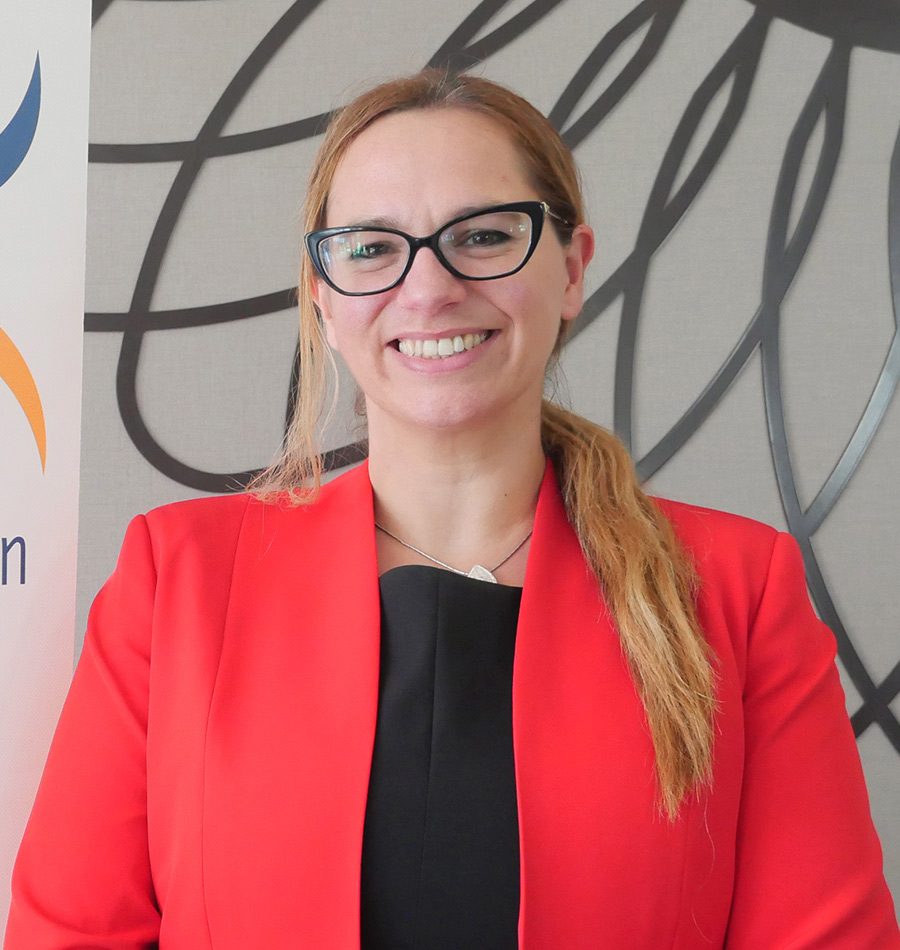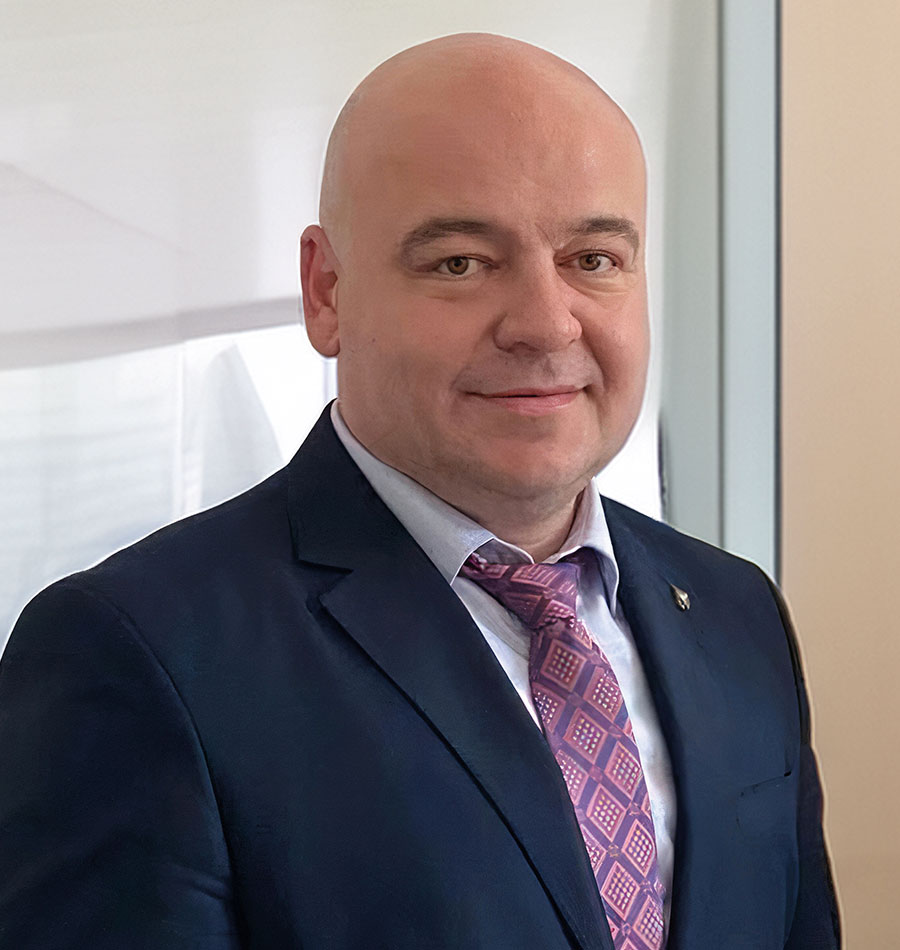Interview
Jana Špero
Secretary General, Confederation of European Probation (CEP)
The Confederation of European Probation (CEP) is an organisation dedicated to promoting social inclusion for offenders through community sanctions such as probation, community service, mediation, and conciliation.
CEP brings together practitioners, academics, and stakeholders from all over Europe to exchange ideas and best practices with the common concern of protecting society without resorting to imprisonment. The organisation serves as the spokesperson for the probation sector in European bodies such as the European Union and the Council of Europe, providing expertise and data to support decision-making in the field.
To learn more about the organisation and its role in the digital transformation of the sector, we talked with its Secretary General, Jana Špero. She is a household name in probation, having been involved in the development of the Croatian Probation System, becoming its Head of Service and later taking on the role of Director General for the country’s Prison and Probation systems.
What are the main goals of the Confederation of European Probation (CEP)?
JS: The CEP is a well-established organisation which has been the leader for probation in Europe since 1981. The main goals of the CEP include advocating probation, connecting members, and helping further the professionalisation of Probation Services. To protect human rights and highlight the importance of probation in criminal justice, the CEP connects members who share common values, while cherishing their differences.
The CEP strongly believes that a society built on the principles of social inclusion provides communities with the best protection from harm caused by crime. So, for our members’ benefit, we advocate using probation, demonstrating leadership and making probation understandable and accessible to different stakeholders and decision-makers.
It is crucial that we promote the ethical and proper use of community sanctions, and therefore we focus on disseminating probation best practices, knowledge and expertise.
As an organisation we take part in many projects related to probation and play an important role in communicating and disseminating those projects’ outputs and outcomes.
We aim to further professionalise probation in Europe; therefore we bring together the knowledge, research and practice to improve practitioners’ training. As a network organisation, we build effective partnerships across the criminal justice sector in Europe, and we represent the probation sector next to European institutions.
What are some of the biggest challenges facing probation in Europe today, and how is CEP helping to address them?
JS: The biggest challenges arise from the new circumstances the world is facing today. We live in a post-COVID time, there is a war in Ukraine, we are seeing climate changes and, recently, we have witnessed once again how implacable the destructive forces of nature can be. All of these factors impact criminal justice systems at national and international levels.
At the core of probation – alternative measures to detention and imprisonment and the better use of community when working with the offenders – is the basic premise of the principle of incarceration as a last resort. This is crucial not only for protecting human rights, but also for enhancing the reintegration and resettlement of offenders. The CEP has a very ambitious agenda with a wide variety of activities to assist our members in providing information on the best probation practices and leadership models. All of these activities support the strengthening of probation services across Europe.
We’re also devoted to bringing research closer to practitioners, offering some answers about what works in the rehabilitation of offenders.
Throughout the year, the CEP organises conferences, workshops, webinars, courses, and meetings that cover diverse topics in which we make sure to involve renowned speakers. These events provide insights into how to address the dilemmas we face in our daily work on probation. It’s also important to highlight that the CEP has a tradition of organising expert groups and networks focusing on highly relevant topics for our members, such as concerns regarding domestic violence, foreign nationals, mental health, technology, education and training, and so on.
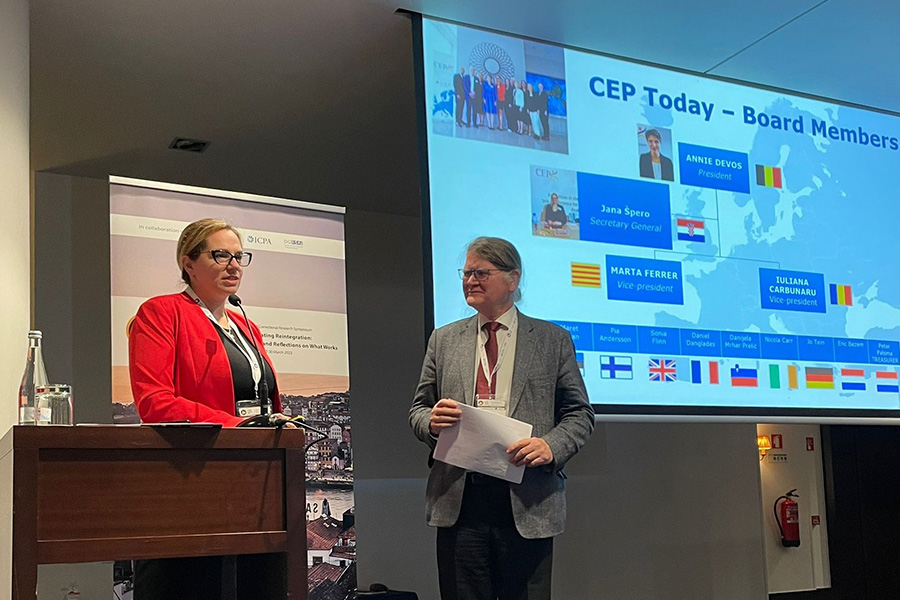
Can you tell us about some of the most successful initiatives that CEP has promoted or been involved in and their impact on the European probation sector?
JS: I’m really happy and proud to say that the CEP is synonymous with probation in Europe. We are involved in all the most crucial activities in the field of probation on the continent. Because of CEP’s activities, there has been an increasing awareness among probation professionals in national criminal justice systems about European Framework Decisions 2008/9471 and 2009/8292.
We will further enhance this awareness in the coming years through new planned activities such as workshops delivered by experts.
The CEP also has a Mental Health Expert Group that is helping to raise awareness about the mental health needs of offenders under the supervision of Probation Services.
Based on the results of this Expert Group, we have recently funded research on the knowledge and attitudes of probation officers towards mental illness in Europe. The results showed a high variance in the practitioners’ knowledge across different countries and a significant association between high knowledge and their confidence in working with people with a mental illness. This clearly makes the case for enhancing the training offer to encompass mental health awareness to all probation staff across Europe. The final report of this research is available on the CEP website and it is very interesting to read. We will continue our work to address the issues raised by these research findings.
Moreover, the CEP conducts annual audits that have become very important for our members. The results of our audits serve as guidance for our next actions and those of our members. For example, the audits carried out in the past two years have assessed “cross-cutting equality, equity, marginalisation, discrimination, and human rights issues including gender, race, minority or social status, beliefs, ability/disability, economic and communication factors” and the caseload and workload of probation staff across Europe. Both these audits have generated great interest, and we hope to see their impact and the results in the years to come.
As a woman, I also want to mention that the CEP’s agenda contributes to promoting gender equality by organising various events where we have open discussions. For example, very recently we had a very successful meeting about gender equality in probation organisations that gathered Directors-General and senior managers from 22 countries.
Finally, I’d like to highlight that we are leading the CoPPer project – “Cooperation to Promote a European Volunteering Program in Probation Services” funded by the Erasmus+ programme. The project will run until 2025 and involves seven partners from five European countries, and the aim is to strengthen the role and importance of volunteering in Probation in Europe. We know how valuable volunteers are in the probation service in Japan, for example, and now we are trying to do something similar in Europe.
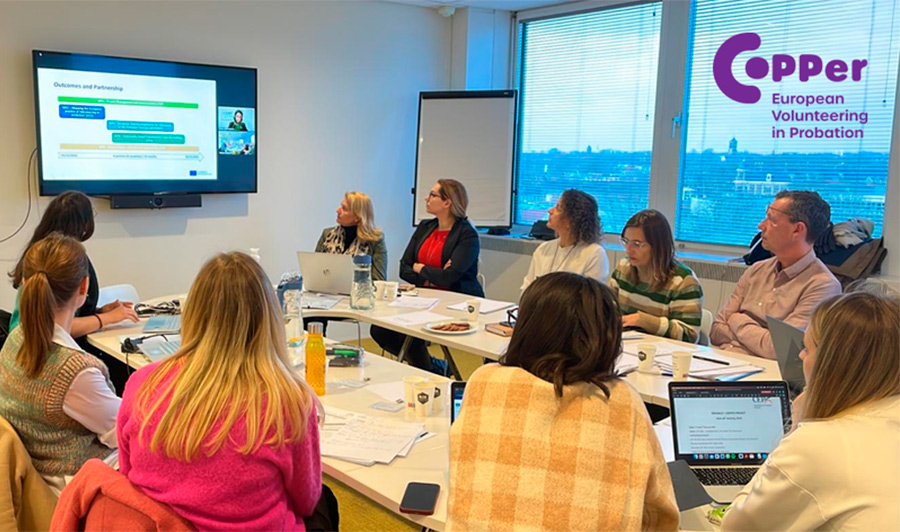
How do you see the role of technology in supporting and enhancing results in rehabilitating and reintegrating offenders in the community?
JS: The CEP is aware of the new trends and recognises the importance of technology when working with offenders on probation, but also in probation services itself, for training, communications, and more.
That is why we have had an Expert Group on Technology in Probation since the beginning of 2017. This expert group is committed to improving cooperation and coordination between the CEP members regarding the wide range of ongoing technological innovation projects in probation services.
The COVID-19 pandemic has shown how crucial technology is today for all of us, which is also true for probation. We are all witnesses of how supervision benefited from technologies during the lockdown, and there is no turning back. However, we need to critically evaluate the results of using technology, because the essence of probation work is the relationship between people and personal human engagement.
Electronic monitoring and other technologies are already developed and used in probation services across Europe.
In some countries, the spread and democratisation of this technology can help choose alternative measures to detention. But for the CEP, it is important to underline that using technology in probation must be purposeful, proportionate, and consistent with probation values. We have to be careful not to use technology just because it is there. We have to find a good balance and decide what is the best option for different situations. If used properly, technology can be a great support for probation staff and for offenders, and a real advantage in their work and rehabilitation/reintegration process, respectively.
We need to critically evaluate the results of using technology, because the essence of probation work is the relationship between people and personal human engagement.
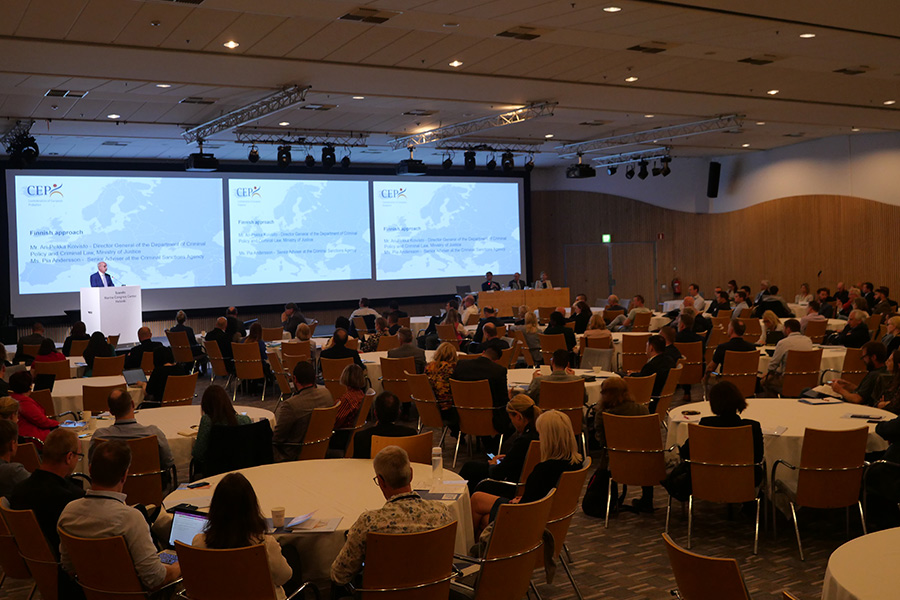
What standout technology implementation examples by CEP members would you highlight?
JS: Technology implementation is still evolving, with much experimentation and testing to find the best fit for probation objectives. As I said, the pandemic accelerated this process, especially in remote working and communications.
We have seen positive technology innovations such as using smartphones and video conferencing to maintain services with clients, contact among probation teams, and good governance for probation leaders at national and international levels. Every jurisdiction had some sort of new solution during the COVID lockdowns.
There are clear benefits and great potential in developing digital technology to support probation work, but they are not without risks.
To avoid unwanted side effects in probation, the implementation must be properly planned, designed and guided by fundamental human rights.
We still lack evidence for some new technological solutions in the probation field, but I am eager to see the results of such innovations.
For example, there is an online simulation platform where professionals can engage in challenging conversations with virtual characters to develop skills in effective practices relying on evidence-based knowledge. The CEP developed a few scenarios with four member countries to train probation staff.
A noteworthy practice comes from the Probation Board of Northern Ireland with the Changing Lives mobile application that gathers a lot of helpful information for both offenders and probation staff.
There are also some great examples in the field of Virtual Reality (VR), namely in Sweden, Catalonia (Spain), and the Netherlands. There is also a new VR project in progress in Croatia, but I think it’s still too early to know exactly what benefits it will have. We will be paying attention to how these technological solutions and applications will be used in the future.
How is CEP contributing to creating and sharing knowledge and expertise concerning the digital transformation of probation organisations?
JS: Besides our Technology in Probation Expert Group, since 1998, the CEP organises Electronic Monitoring (EM) Conferences biannually. The most recent EM Conference was held in 2022 in Helsinki, Finland, after being postponed twice due to the COVID pandemic, and the next will be organised in 2024.
The focus of these conferences has expanded over the years to include some other technologies for the probation sector. The event is a great place for experts to discuss and share knowledge and ideas.
At the last conference, we discussed the ethical challenges of integrating technologies into probation practice, the novel technologies that support probation services, and the possibilities of using Artificial Intelligence, among other topics. By creating these focused events, we’re directly contributing to sharing knowledge and expertise in digital transformation.
1 On the application of the principle of mutual recognition to judgments and probation decisions with a view to the supervision of probation measures and alternative sanctions
2 On the application, between Member States of the European Union, of the principle of mutual recognition to decisions on supervision measures as an alternative to provisional detention
Jana Špero
Secretary General, Confederation of European Probation (CEP)
Jana Špero is the Secretary General of the Confederation of European Probation (CEP) since September 2022. Previously she held the role of Vice-President (2019-2022), and Board Member of CEP (2016-2019). She was Head of Service and responsible for the development of the Croatian Probation Service, and in 2017 became the Director-General for Prisons and Probation of Croatia, a position she had until 2022. As an international consultant and expert on prison and probation matters, she worked with the Council of Europe and UNAFEI on numerous projects in different countries. Ms Špero holds a Master of Laws and an M.Sc. in Criminal Investigation.

